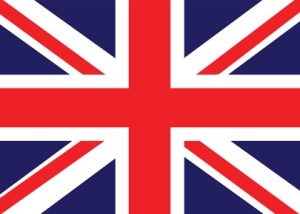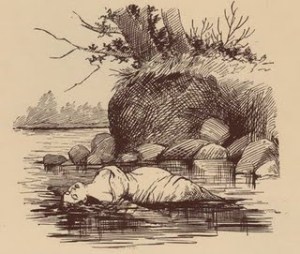Recent reading roundup: The Brits, then and now
 Just in time for the Fourth of July -- or maybe in anticipation of the London Olympics? -- OK, it was completely by accident -- I recently finished two books whose authors are Brits and which concern mostly British people in harrowing situations. *
Other than that, they couldn't be more different.
Just in time for the Fourth of July -- or maybe in anticipation of the London Olympics? -- OK, it was completely by accident -- I recently finished two books whose authors are Brits and which concern mostly British people in harrowing situations. *
Other than that, they couldn't be more different.
One is nonfiction, the other is a novel. The nonfiction book was just published, the novel came out eight years ago. One is a disturbing account of a young woman who falls victim to a sociopath. The other is a historical adventure romp that should appeal to people who like Bernard Cornwell's Sharpe novels -- and/or the movie version of Last of the Mohicans. Yes, that happens to describe me.
I read the nonfiction book first, a contemporary true crime account called People Who Eat Darkness (note to publishers: why oh why would you give a book a title that is both generic and difficult to remember???). I've recently gotten into the true crime genre but almost exclusively on the historical end. More recent crimes just don't interest me enough to read an entire book about them - most of the appeal is learning about a whole time period or society rather than just getting tons of detail about an ugly crime. But this book got a good review on Salon so I figured I'd give it a try. Especially since it was helpfully in the library's collection.
The author, Richard Parry, is a British journalist based in Tokyo. One story he covered during his tenure there was the disappearance of a young British woman, Lucie Blackman and the subsequent trial of the man accused of killing her.
It's very well done, especially on the inevitable but still heartbreaking cultural divide and incomprehension between Blackman's desperate family and the Japanese authorities tasked with investigating her disappearance. Blackman was working as a hostess in a Japanese bar, one of scores of Western women who flirt and drink with Japanese men at bars in the Roppongi district of Tokyo. She was far from the first to encounter the man eventually charged with killing her -- and that's the other heartbreaking part of the story, how many opportunities were lost to stop the sociopath before he encountered Lucie.
Parry also excels at his portrayal of Blackman's family. Her parents had already been through a bitter divorce and Lucie's disappearance drove them even further apart. Lucie's father, Tim, spent a lot of time in Japan and courted the media in the search for his daughter. Her mother, Jane, was far less public -- and eventually made Tim's efforts the target of her own rage, trying to discredit and destroy the Lucie Blackman Trust he established and cast him as a villain in the drama. Parry is straightforward but fair in his depiction of the two grieving parents, who can't even rely on each other for support in the midst of a parent's worst nightmare. As anyone who's ever grieved knows, each person reacts differently and not always rationally -- and that's just normal grief, not the horrifying media-glare version the Blackmans endured.
My favorite line, though, came toward the end of the book when Parry is describing a self-published manifesto by the defendant (and in a further torture for Lucie's family, his trial took six years, because hearings were held every few months and because the Japanese judicial system rarely encounters a defendant who does not, eventually confess to his crimes). Obara's book, "The Truth About the Lucie Case," contains some valid questions about the prosecution and evidence, Parry acknowledges. "But the body of material was so vast, so promiscuously inclusive and unfocused, that any value it had was overwhelmed in a slurping swamp of weirdness and tedium." If you've ever encountered someone who's gone down the rabbit hole on making their case -- and has the wherewithal to publish their findings -- you know exactly what he's talking about.
The second book was a much lighter, easier read -- I polished it off in a day while waiting for the AT&T guy to come and fix our internet service. It's called Jack Absolute by C.C. Humphreys and it's adventurous historical fiction in the Bernard Cornwell/Sharpe vein. It's also in the library's collection. And it's got a great premise: that the character Jack Absolute from The Rivals by Richard Sheridan, was a real person. The book opens shortly after the play is produced (the book's conceit is that Sheridan and Absolute are friends, and Sheridan wrote about a real episode from Absolute's life and used his name, thinking his friend had died in India). As the novel begins, our man Jack, a retired captain in the Light Dragoons, is trying to make his way to the Caribbean where he has recently acquired a plantation he hopes will restore his family's fortune. Instead, he is coerced back into the Army to serve as a spy for the British forces trying to quash the American Revolution.
It's interesting to see the American Revolution from the other side -- Benedict Arnold makes an appearance while still fighting for the rebels but he's obviously a turncoat-in-the-making -- and Absolute is an attractive and entertaining character. My only quibble with the book is that I figured out who the concealed enemy spy was more than 100 pages out and I'm not usually too sharp on those plot twists. So if I can figure it out it must be really obvious. Still, I plan on reading the other two books in the series and must admit I'm disappointed that they're both prequels. Humphreys appears to have moved on to other subjects in the meantime, so I don't know if I'll ever find out what happens next to Jack Absolute.
* Since writing this it has come to my attention that C.C. Humphreys was born in Canada and now lives in Canada so maybe I shouldn't call him a Brit. He did grow up in Britain, though, according to the jacket copy and he certainly has worked there and the book is, in fact, all about Brits.



